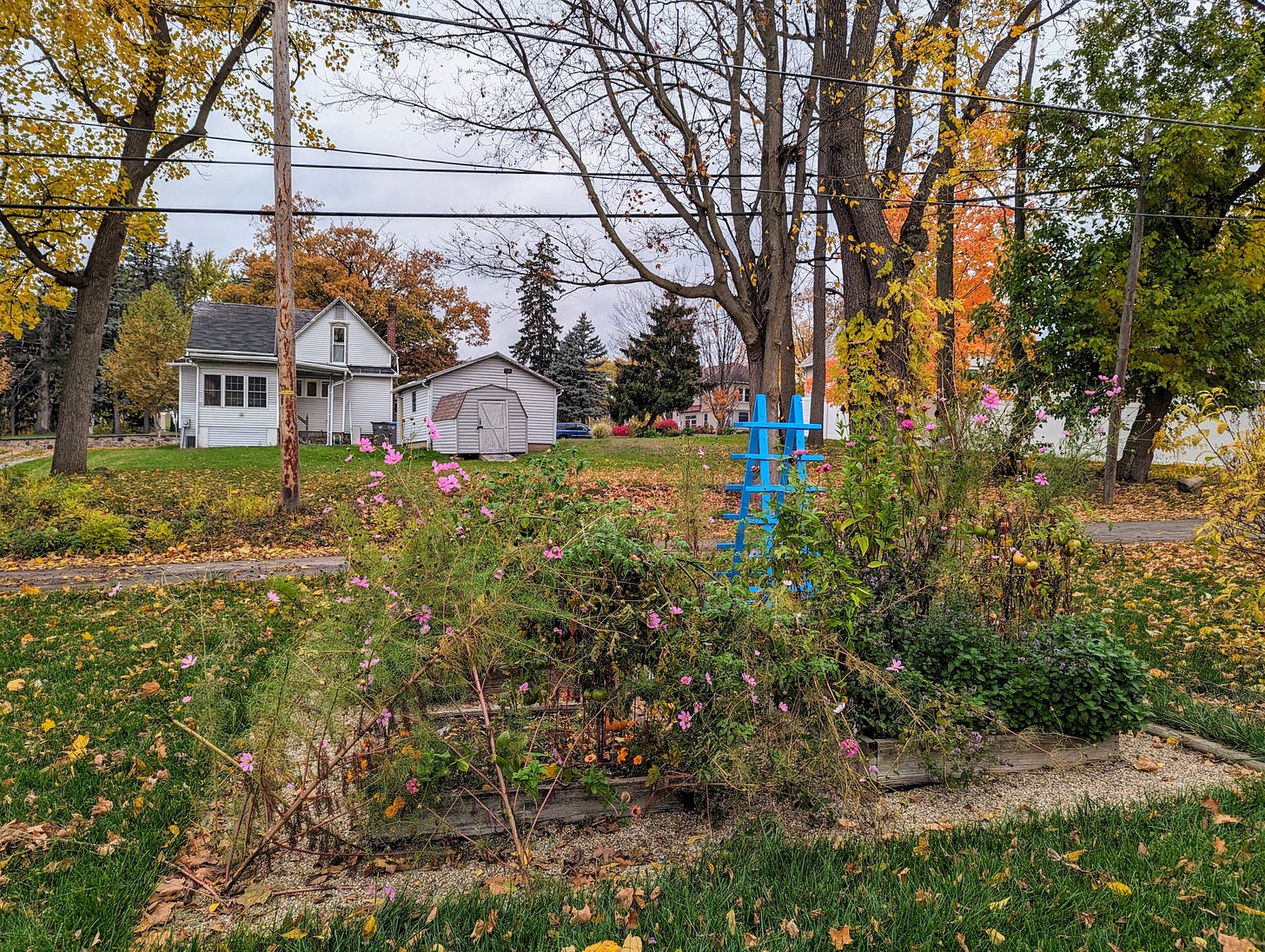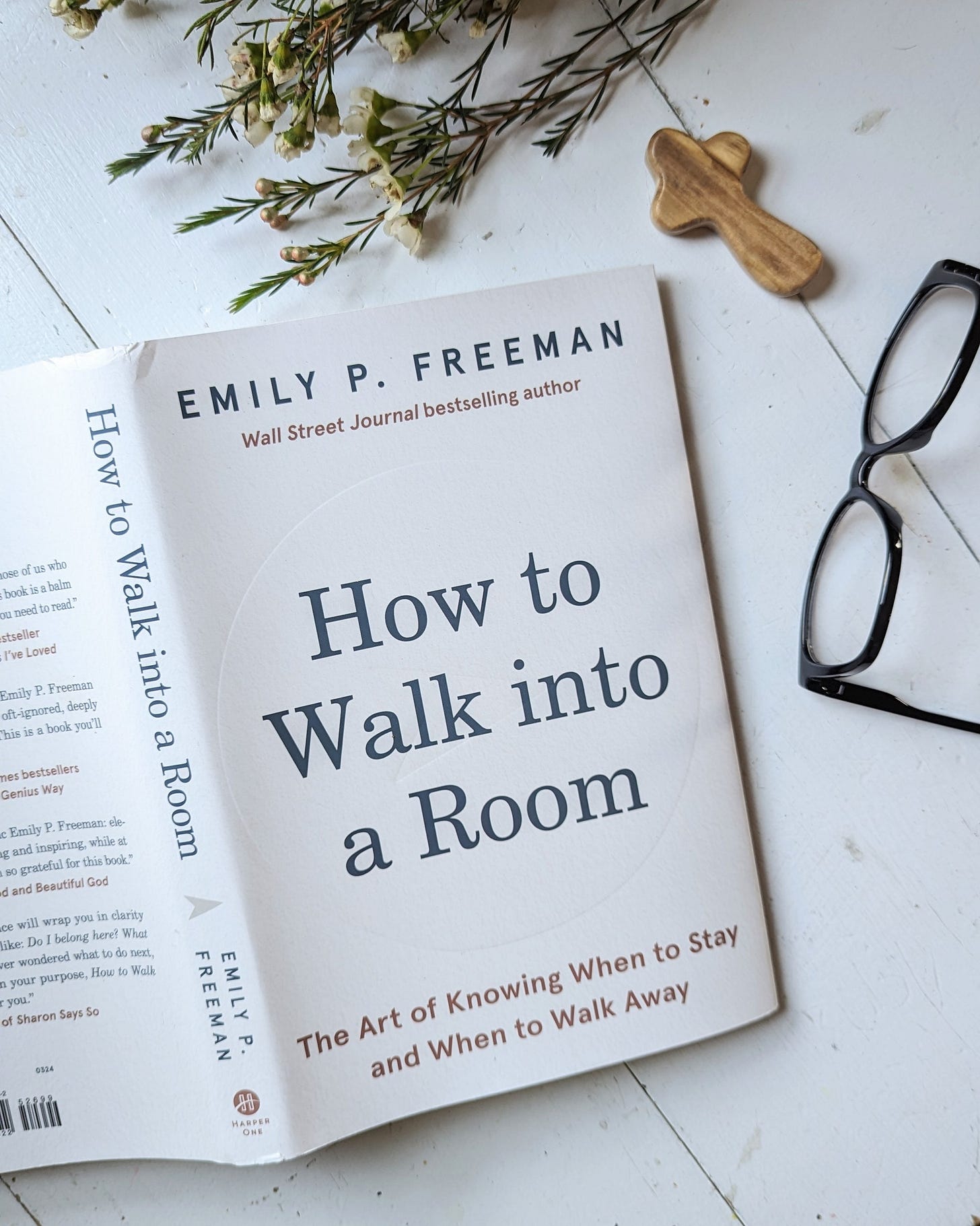“Perhaps the most difficult decisions we make about the various rooms of our lives are the ones about the rooms we love and that have loved us. These are spaces we’ve memorized and could navigate in the dark without stubbing one toe. We know the people; they know us. We know the processes and the rules, both spoken and unspoken. These are the rooms where we’ve tucked our socked feet beneath us on the sofa, stayed up late into the night, relating and laughing and listening with compassion. But then something happens…”
You could blindfold me, spin me in circles, drive me in twisting loops around this city and drop me into the church at the end of my street, and I would know where we were just by the scent of the air. Decades of faithfulness driven into the carpeted hallways. Wood paneling patinaed by hundreds of fingertips. Musty, dusty, lovely. The scent of belonging.
I regret that I never climbed the last set of narrow stairs and pulled the thick rope to the bell that stopped ringing long ago. I regret that I thought our church was different, that “mainline” was a forward step, that we were somehow immune to peril.
A few days ago, I received an email from someone I haven’t seen or spoken to in years, but who has always been a presence of integrity and trust. She’d heard slivers of our church turmoil.
Care to share? Wondering what is going on and how you and Cory are.
And so…
On July 5th, as I was taking my kids to swim for the afternoon, Cory and I became aware that a prominent lay-leader within our small, neighborhood congregation had previously committed a violent crime against a child. In a faith community built mostly of people incarcerated in the nearby work release, it is notable that this man was not among them. He was a former pastor, the only one who showed up on Sundays in a suit and tie. The victim had been a congregant of his former church.
This man found our precarious little church filled with vulnerable people and insufficient leadership and inserted himself, with the knowledge of his family, into positions of authority and opportunities for unsupervised access to children. He actively concealed his crime and his status as a registered sexual offender while posturing as a spiritual leader.
Our alarm bloomed into disbelief. This isn’t right. In that first week of discovery, through our shock, we naively believed there was a way through. We thought logic and basic common sense would prevail. We were wrong. As our voices got louder, the leaders of our church turned on us. We were the problem (words they quoted many times.)
Having built our community around people who have criminal histories, it was disorienting and painful to face the tired rebuttals that we do not know how to show grace, that no one is without sin, that we cannot “judge a man’s heart.”
Indeed, God’s grace is for all, no exceptions.
Yet the simple fact remains - grace does not equal access.
The dangerous man had severed trust from the first time he walked through the church doors. Some breaches cannot be mended. Yet for reasons we will never understand, the leaders of our church initially protected him and his comfort over the community as a whole. They dragged Cory, myself, and anyone aligned with us through the mud. Then they stripped all of us of our leadership positions. Though they eventually made some changes in the access they allowed him, the damage was done.
Our refrain was simple and unwavering - This is wrong. It never had to be this way. We need to fix it. We wanted acknowledgement. We wanted to believe there were enough broken pieces left to glue back together.
All the while, even as endless waves of betrayal and confusion clobbered our resolve and stole our summer, we wrestled with whether we should stay or go. The thought of walking away left me feeling wounded. Grief upon grief. I could not bear the thought of driving past the church every time I left the house. I imagined sobbing in my minivan.
I was raw.
I was numb.
I was stuck.
“There’s a unique pain that comes from realizing it’s time to move on from a group, idea, belief, or vocation that was once exactly right for you, or at least seemed exactly right.”
How to Walk into a Room
Summer faded into fall, our dog-days drained of the renewal Midwesterners require before facing another winter. Our nervous systems rattled. Cory stopped sleeping. Every conversation was a continuation of confusion. Every “social” gathering we entered left everyone feeling worn out and grumpy.
“It feels like we have two choices,” I told Cory. “Toxic? Or, tragic?”
In one of the last beautiful days of October, I surveyed the garden that had not saved my life like I’d hoped. My grief bottomed out. It was time to tear up the battered cosmos. Move on.
The metaphor was ripe, yet I resisted.
The blooms were fading, but there was still some life left. Didn’t that count for something? Couldn’t I wait it out, letting nature have her way toward a slower but inevitable surrender?
It was a riot of decay, not pretty, but mine.
I gathered rotting tomatoes, pulled out pepper plants, clipped the last living zinnias. I folded the cucumber trellis and yanked out some invasive mint.
When there was nothing else left, I grabbed the last stalk of cosmos and ripped it out along with my heart.
Emily’s words rang in my ears:
“For beauty to come from ashes, something has to burn.”
I wasn’t destroying flowers. I was clearing the debris.
In October’s last breath, the metaphor held. I suddenly knew that to stay in a toxic system was to become part of the decay. If I hoped for new growth, I was going to have to make room. I chose my own broken heart.
Just as Emily’s friendship is a joyful presence in my daily life, her wise, compassionate words in How to Walk into a Room1 have been my companion for this letting go.
“We were leaving,” she wrote, “but we felt left.” My eyes welled up in understanding.
Moving at the pace of grief, we began to settle our affairs. A few weeks later, we said a tearful goodbye to people we love and walked out of the only church our children have ever known.
“God has what it takes to sort it out,” Emily wrote.
I believed her.

This stunning book couldn’t be more timely.
If you are struggling with a decision that feels too big, one that is tangled up with your identity or your place, the kind that incinerates your peace, How to Walk into a Room is here to take you by the hand.
If everyday discernment feels fraught or you’re generally unsteady, this book is for you, too. We are always walking into and out of rooms. We are always loitering in the hallways of this shattering, magical life.
Emily is a masterful writer and a gifted, grounded listener. She shares more personally and more vulnerably in these pages than she has ever shared before, and the impact is profound. Somehow, this book reads its reader.
Thank you for your patience while I listened to my body2 and moved at my own pace in telling this story.3 Thank you for understanding this particular pain. Also, I’m truly sorry that so many of us do.
Last weekend, I spent a sunny hour tending my garden beds for spring. They are mostly empty right now, but that doesn’t mean they’re dead. They are resting up for what comes next. May we do the same.
“But there is an inner knowing that the wind cannot touch, the fire cannot burn, the waters cannot overcome. There is a solid, still place deep within us where we dwell as whole.”
I use Bookshop affiliate links because I’m into supporting local bookstores! You can find Emily’s book anywhere you normally get your books. (And she reads the audiobook herself in her dreamy, soothing voice!)
Listening to our bodies is something our family has talked about a lot since July 5, 2023. (Yes, the date is seared.) There were red flags and warning signs in many of us around this particular person. With time and familiarity, we stopped listening. Our bodies know things. Our bodies protect us. Many of us in religious spaces were taught NOT to trust ourselves or our bodies. And it begs the question - why? Who did this serve? Certainly not the most vulnerable.
I’ve thought a lot about the unwritten code within faith spaces to silence people. It is a powerful manipulation that serves no one but those who pose a threat. I know we are not alone. I hope and trust that my sharing was helpful to some of you.








I am in full body sob mode - for you, for your former congregation, for Cory's sleepless nights, for the only church your children have ever known, for the garden and the ashes and your worn out nervous system. I love you beyond measure.
I am the director of a center that works with child abuse victims and the compulsion to protect predators is astonishingly common. I am so sorry for your experience and the loss of your church family. You have been brilliantly brave on behalf of voiceless victims. Thank you. May grace abound in your life in the most unexpected ways.